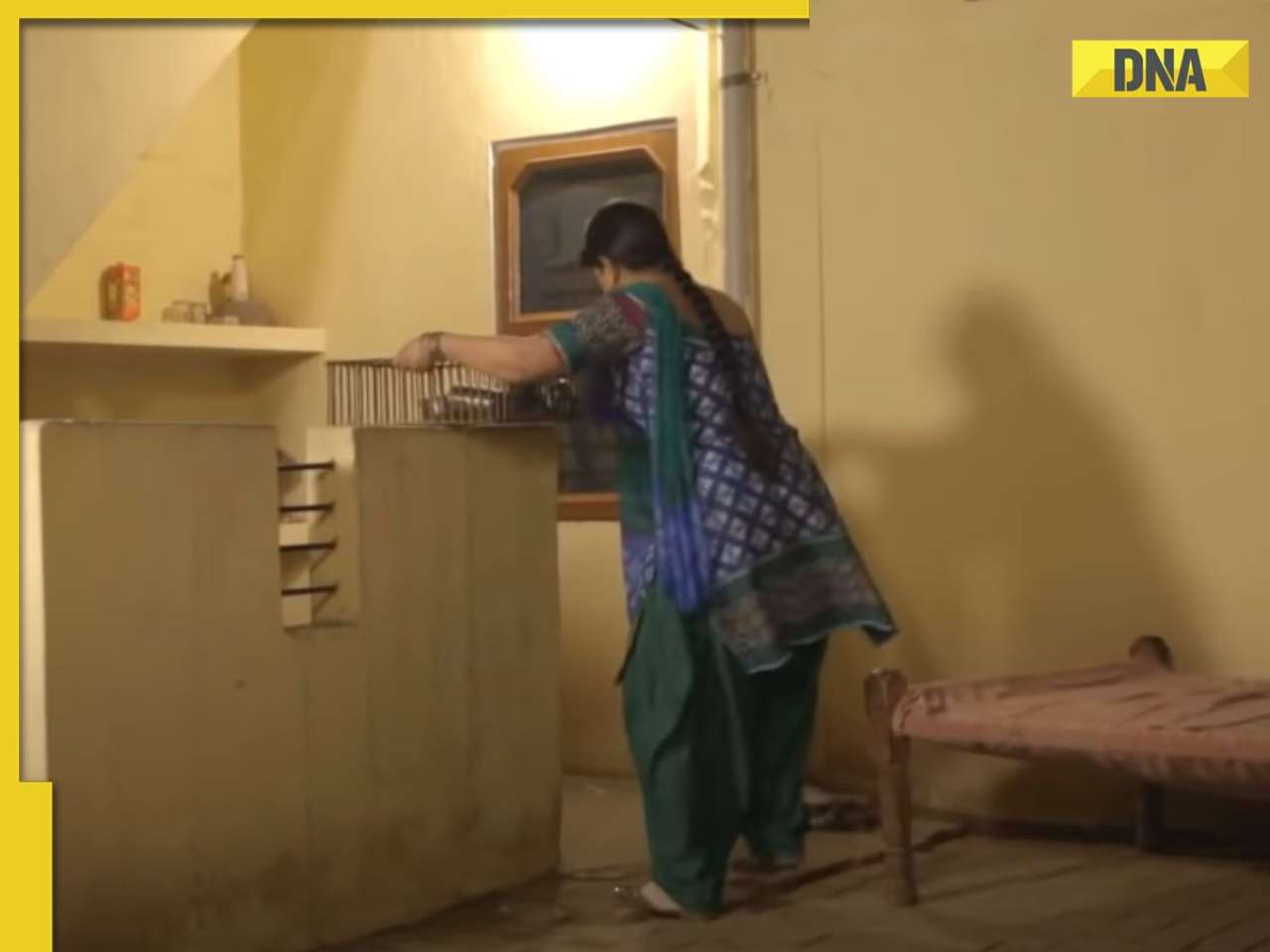Stock market regulators the world over, obviously, recognise this and thus have allowed short selling of shares.
MUMBAI: He who sells what isn’t his, must buy it back or go to prison, goes an old Wall Street adage.
Napolean Bonaparte, the great French general, deemed short sellers as enemies of the state.
A few years back the finance ministry of Malaysia said that caning would be the right penalty for short-sellers
“Though it can be abused in various ways, it is a legitimate tactic whose practitioners shouldn’t be universally demonised,” said John Allen Paulos, a professor of mathematics at Temple University in Philadelphia and the author of the best selling book A Mathematician Plays the Stock Market.
Stock market regulators the world over, obviously, recognise this and thus have allowed short selling of shares.
In India, short-selling of shares was disallowed in 2001 after the Ketan Parekh scam came into light.
Come April 21, and short-selling will be allowed again.
Stockbrokers who operate through the Bombay Stock Exchange and want to offer this facility to their clients will have to first enter into a separate agreement with Bank of India Shareholding Ltd (BOISL), the bourse’s clearing house.
The securities lending and borrowing session will happen between 10 am and 11 am on days when the stock market is open.
So investors looking to short-sell a stock on a particular day will have to first borrow it in the morning between 10 am and 11 am.
Short-selling essentially refers to selling a share that one does not own, in the hope of buying it again later at a lower price and making money on the difference.
If an investor feels that a stock is overvalued at Rs 100, he can sell it, and then wait for the stock price to fall. If the stock price falls to Rs 80, he can then buy the stock at Rs 80 and pocket the difference of Rs 20.
Currently retail investors are allowed to short-sell. However, they have to settle their position by the end of the day.
But no naked short-sales will be allowed.
What this means is that anyone (institution or retail investor) looking to sell a share he does not own will have to borrow it first.
Investors can borrow shares from the stock lending and borrowing scheme, short it and then buy it back at a lower price, to make a profit.
Institutional investors short-selling will have to specify at the time of selling that the order is a short-sale.
Retail investors have time until the end of trading hours. The stock lending and borrowing shall take place on an automated, screen based, order-matching platform, which will be provided by the approved intermediaries like BOISL. This platform shall be independent of the other trading platforms.
Those borrowing the stock will have to maintain a margin of 140% of the amount of stock borrowed with his broker. The broker will have to be maintain a similar margin with the exchange. So if stock worth Rs 10,000 is borrowed, then a margin of Rs 14,000 would have to be maintained. This step will effectively ensure that the retail investor will find it very difficult to be a part of this game.
The stock that has been borrowed for short-selling has to be returned within a period of eight days.
Retail as well as institutional investors can participate in this scheme and lend their shares to short sellers.
The investor borrowing will have to pay a certain fees to the investor lending.
“Mutual funds and high networth individuals will see at least 5-7% higher returns as they will be able to lend out stocks which, until now remained idle while maintaining long term view and benefiting from the dividend yields,” points out a recent report from broking house Latin Manharlal Securities.
But there are others who are not as optimistic. “In my intuition, demand for borrowing is small and the supply (with institutional investors) is quasi-infinite, so access to borrowed shares should become possible at very low prices,” writes Ajay Shah, senior fellow at National Institute of Public Finance and Policy on his blog http:ajayshahblog. blogspot. com. Currently investors can short sell only those stocks whose derivates are available.
There are 227 stocks which fall into this category. Experts question this arrangement as well. If a stock is overvalued an investor easily sell a future on the stock or buy a put option on it, to profit from the situation.
This transaction is much more easier than first borrowing the stock and then selling it. “Short-selling needs to be quickly expanded beyond the derivative stocks to at least the top 1,000 or 2,000 stocks,” writes J R Varma, professor at IIM, Ahmedabad in his blog.
He also questions the merit of a seven-day contract. “Global experience suggests that when short positions are established in stocks on the suspicion of fraud or misreporting by the company, the position has to be maintained for several months for the short sellers to expose the fraud and make a profit on the position.”
This would clearly help investors drive down prices of stocks they feel are clearly overhyped and hence prevent stock market bubbles.
Currently investors can only profit stock futures quoting at a greater price than the share price.
They can buy the share in the cash market and sell the same stock in equal quantity in the futures market. On the settlement date, they can sell the share and buy back futures, to make a profit. This is known as arbitrage.
But with stock futures being allowed, investors can reverse arbitrage. Reverse arbitrage comes into the picture, when the futures price is quoting at a discount to the share price in the cash market.
In this situation futures can be bought and shares can be sold to make an arbitrage profit. Nevertheless, this would involve selling shares the investor does not own and would amount to short selling. With the new arrangement in place, investors can borrow shares and short-sell them. Arbitrage opportunities are known to exist primarily in a bullish market. In a bearish market, reverse arbitrage opportunities are thrown up more. With markets not doing well lately, this could mean another source of income for investors.
k_vivek@dnaindia.net
n_subramanian@dnaindia.net
![submenu-img]() Meet India's highest paid director, charges 30 times more than his stars; not Hirani, Rohit Shetty, Atlee, Karan Johar
Meet India's highest paid director, charges 30 times more than his stars; not Hirani, Rohit Shetty, Atlee, Karan Johar![submenu-img]() Indian government issues warning for Google users, sensitive information can be leaked if…
Indian government issues warning for Google users, sensitive information can be leaked if…![submenu-img]() Prajwal Revanna Sex Scandal Case: Several women left home amid fear after clips surfaced, claims report
Prajwal Revanna Sex Scandal Case: Several women left home amid fear after clips surfaced, claims report![submenu-img]() Meet man who studied at IIT, IIM, started his own company, now serving 20-year jail term for…
Meet man who studied at IIT, IIM, started his own company, now serving 20-year jail term for…![submenu-img]() Gautam Adani’s project likely to get Rs 170000000000 push from SBI, making India’s largest…
Gautam Adani’s project likely to get Rs 170000000000 push from SBI, making India’s largest…![submenu-img]() DNA Verified: Is CAA an anti-Muslim law? Centre terms news report as 'misleading'
DNA Verified: Is CAA an anti-Muslim law? Centre terms news report as 'misleading'![submenu-img]() DNA Verified: Lok Sabha Elections 2024 to be held on April 19? Know truth behind viral message
DNA Verified: Lok Sabha Elections 2024 to be held on April 19? Know truth behind viral message![submenu-img]() DNA Verified: Modi govt giving students free laptops under 'One Student One Laptop' scheme? Know truth here
DNA Verified: Modi govt giving students free laptops under 'One Student One Laptop' scheme? Know truth here![submenu-img]() DNA Verified: Shah Rukh Khan denies reports of his role in release of India's naval officers from Qatar
DNA Verified: Shah Rukh Khan denies reports of his role in release of India's naval officers from Qatar![submenu-img]() DNA Verified: Is govt providing Rs 1.6 lakh benefit to girls under PM Ladli Laxmi Yojana? Know truth
DNA Verified: Is govt providing Rs 1.6 lakh benefit to girls under PM Ladli Laxmi Yojana? Know truth![submenu-img]() Jr NTR-Lakshmi Pranathi's 13th wedding anniversary: Here's how strangers became soulmates
Jr NTR-Lakshmi Pranathi's 13th wedding anniversary: Here's how strangers became soulmates![submenu-img]() Streaming This Week: Heeramandi, Shaitaan, Manjummel Boys, latest OTT releases to binge-watch
Streaming This Week: Heeramandi, Shaitaan, Manjummel Boys, latest OTT releases to binge-watch![submenu-img]() Remember Ayesha Kapur? Michelle from Black, here's how actress, nutrition coach, entrepreneur looks after 19 years
Remember Ayesha Kapur? Michelle from Black, here's how actress, nutrition coach, entrepreneur looks after 19 years![submenu-img]() Remember Heyy Babyy's cute 'Angel' Juanna Sanghvi? 20 year-old looks unrecognisable now, fans say 'her comeback will...'
Remember Heyy Babyy's cute 'Angel' Juanna Sanghvi? 20 year-old looks unrecognisable now, fans say 'her comeback will...'![submenu-img]() In pics: Arti Singh stuns in red lehenga as she ties the knot with beau Dipak Chauhan in dreamy wedding
In pics: Arti Singh stuns in red lehenga as she ties the knot with beau Dipak Chauhan in dreamy wedding![submenu-img]() DNA Explainer: Why Harvey Weinstein's rape conviction was overturned, will beleaguered Hollywood mogul get out of jail?
DNA Explainer: Why Harvey Weinstein's rape conviction was overturned, will beleaguered Hollywood mogul get out of jail?![submenu-img]() What is inheritance tax?
What is inheritance tax?![submenu-img]() DNA Explainer: What is cloud seeding which is blamed for wreaking havoc in Dubai?
DNA Explainer: What is cloud seeding which is blamed for wreaking havoc in Dubai?![submenu-img]() DNA Explainer: What is Israel's Arrow-3 defence system used to intercept Iran's missile attack?
DNA Explainer: What is Israel's Arrow-3 defence system used to intercept Iran's missile attack?![submenu-img]() DNA Explainer: How Iranian projectiles failed to breach iron-clad Israeli air defence
DNA Explainer: How Iranian projectiles failed to breach iron-clad Israeli air defence![submenu-img]() Meet India's highest paid director, charges 30 times more than his stars; not Hirani, Rohit Shetty, Atlee, Karan Johar
Meet India's highest paid director, charges 30 times more than his stars; not Hirani, Rohit Shetty, Atlee, Karan Johar![submenu-img]() This superstar worked as clerk, was banned from wearing black, received death threats; later became India's most...
This superstar worked as clerk, was banned from wearing black, received death threats; later became India's most...![submenu-img]() Karan Johar slams comic for mocking him, bashes reality show for 'disrespecting' him: 'When your own industry...'
Karan Johar slams comic for mocking him, bashes reality show for 'disrespecting' him: 'When your own industry...'![submenu-img]() Kapoor family's forgotten hero, highest paid actor, gave more hits than Raj Kapoor, Ranbir, never called star because...
Kapoor family's forgotten hero, highest paid actor, gave more hits than Raj Kapoor, Ranbir, never called star because...![submenu-img]() Meet actress who lost stardom after getting pregnant at 15, husband cheated on her, she sold candles for living, now...
Meet actress who lost stardom after getting pregnant at 15, husband cheated on her, she sold candles for living, now...![submenu-img]() IPL 2024: Kolkata Knight Riders take top spot after 98 runs win over Lucknow Super Giants
IPL 2024: Kolkata Knight Riders take top spot after 98 runs win over Lucknow Super Giants![submenu-img]() ICC Women’s T20 World Cup 2024 schedule announced; India to face Pakistan on....
ICC Women’s T20 World Cup 2024 schedule announced; India to face Pakistan on....![submenu-img]() IPL 2024: Bowlers dominate as CSK beat PBKS by 28 runs
IPL 2024: Bowlers dominate as CSK beat PBKS by 28 runs![submenu-img]() IPL 2024: Big blow to CSK as star pacer returns home due to...
IPL 2024: Big blow to CSK as star pacer returns home due to...![submenu-img]() SRH vs MI IPL 2024: Predicted playing XI, live streaming details, weather and pitch report
SRH vs MI IPL 2024: Predicted playing XI, live streaming details, weather and pitch report![submenu-img]() Job applicant offers to pay Rs 40000 to Bengaluru startup founder, here's what happened next
Job applicant offers to pay Rs 40000 to Bengaluru startup founder, here's what happened next![submenu-img]() Viral video: Family fearlessly conducts puja with live black cobra, internet reacts
Viral video: Family fearlessly conducts puja with live black cobra, internet reacts![submenu-img]() Woman demands Rs 50 lakh after receiving chicken instead of paneer
Woman demands Rs 50 lakh after receiving chicken instead of paneer![submenu-img]() Who is Manahel al-Otaibi, Saudi women's rights activist jailed for 11 years over clothing choices?
Who is Manahel al-Otaibi, Saudi women's rights activist jailed for 11 years over clothing choices?![submenu-img]() In candid rapid fire, Rahul Gandhi reveals why white T-shirts are his signature attire, watch
In candid rapid fire, Rahul Gandhi reveals why white T-shirts are his signature attire, watch


























































)
)
)
)
)
)